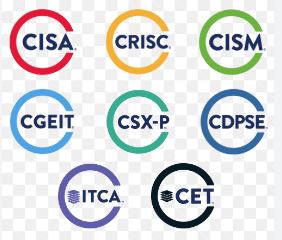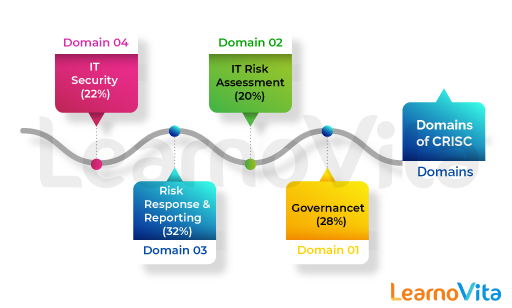- Difference between Waterfall approach and Agile approach
- CCIE Certification Cost in India
- What is IOT? | Know about IOT Application
- How to install Jenkins on Ubuntu? : A Complete Guide
- What is AWS Instance Types? : A Complete Guide
- VMware Site Recovery Manager : Know all about it
- What is Big Engineering? | Know about the salary
- What is Data Model in Salesforce ?
- Splunk architecture| Know from the basics [ OverView ]
- What is Azure Arc? | Integration Guide | A Complete Guide with Best Practices
- Introduction To Docker Networking: Advantages and Working | Everything You Need to Know
- Introduction to Azure ASR-enabled servers | All you need to know [ OverView ]
- Create Alarms in Amazon CloudWatch | Integration Guide | A Complete Guide with Best Practices
- What’s AWS VPC? Amazon Virtual Private Cloud Explained | A Complete Guide with Best Practices
- What Makes the Difference between Containers Vs Virtual Machines | All you need to know [ OverView ]
- What is a CDN? | How Do Content Delivery Networks Work | A Complete Guide with Best Practices
- Top Real World Applications of Cloud Computing | A Complete Guide with Best Practices
- What to Expect AWS Reinvent Reinforces the Growth of Cloud Computing|All you need to know [ OverView ]
- What is Cloud Computing Technology with SalesForce Integration | How its Work [ OverView ]
- Kubernetes vs Docker Swarm | What’s the Difference and Which Should You Learn?
- Big Data vs Data Warehouse | Know Their Differences and Which Should You Learn?
- Public Cloud vs Private Cloud | Know Their Differences and Which Should You Learn?
- Red Hat Certification Path: A Complete Guide For Beginners with Best Practices
- An Overview of AWS SDK and Toolkit | A Complete Guide with Best Practices
- An Overview of MuleSoft Anypoint | Benefits and Special Features | A Definitive Guide with Best Practices
- What is Amazon Elastic Load Balancer? : Benefits and Special Features with REAL-TIME Examples
- What is AWS Console ? : A Complete Guide with Best Practices
- Microsoft Azure Application Gateway | Step-By-Step Process with REAL-TIME Examples
- A Definitive Guide for Azure Automation | Benefits and Special Features
- Azure ExpressRoute | Everything You Need to Know | Expert’s Top Picks
- What is Hybrid Cloud? | Everything You Need to Know | Expert’s Top Picks
- A Complete Citrix Certification Path | A Complete Guide For Beginners [ OverView ]
- What is Azure Active Directory B2C ? : Step-By-Step Process with REAL-TIME Examples
- What is Azure DNS ? Azure DNS – Azure Domain Name System | REAL-TIME Examples
- Top AWS Statistics | Everything You Need to Know | Expert’s Top Picks
- Docker Swarm Architecture | Everything You Need to Know [ OverView ]
- What is Dell Boomi? | Everything You Need to Know [ OverView ]
- Cloud Architect Salary in India | All you need to know [ For Freshers and Experience ]
- What Is Multitenancy ? : Characteristics , Features , Benefits | All you need to know [ OverView ]
- What Is the Recommended List of AWS Whitepapers? | Expert’s Top Picks
- OSCP vs CEH | Difference You Should Know
- Openshift vs Kubernetes | Difference You Should Know
- AWS Cloud Practitioner and Required Skills | Expert’s Top Picks
- CRISC Certification and Benefits | A Complete Guide with Best Practices
- Kali vs Parrot | Difference You Should Know
- How to Install Docker on Ubuntu | Comprehensive Guide
- AWS Certification Cost and Types of Exams [ Job & Future ]
- What is the Average AWS Solutions Architect Salary?
- Reasons to Take up A Cloud Computing Certification
- What is Cloud Databases
- What is Cloud Computing Architecture?
- AWS vs Azure vs Google Cloud
- Top AWS Services
- Advantages and Disadvantages of Cloud Computing
- Cloud Computing 2020: An Analysis Of Cisco’s Cloud Index Survey, 2016
- What Are The Fundamental Microsoft Cloud Services That Are In Demand?
- What are the Issues in cloud computing?
- Top Important Cloud Computing Terms
- From Developer to AWS Cloud Specialist – The AWS Certification Learning Paths
- Why and How to Pursue a Career in AWS?
- The Top In-demand cloud skills for 2020
- Edge Computing Vs. Cloud Computing
- Top 10 Reasons to Learn AWS
- Cloud Computing Career Guide
- What does a AWS solution architect do?
- AWS Career Guide
- VMware vSphere best practices
- The AWS Engineer: Job Roles, Salaries And the Career Path
- What Is Microsoft Azure in Cloud Computing?
- How to Become an Azure Developer?
- Citrix Xenserver Vs Vmware vSphere
- Microsoft’s Project Olympus Delivers Cloud Hardware
- The Future of Cloud Computing
- Why Cloud Computing Is Essential to Your Organization?
- Amazon Web Services – WorkMail
- What is AWS?
- AWS Vs OpenStack
- AWS Certification Path
- AWS ElasticSearch
- AWS EC2 Instance Types
- Microsoft Azure Portal
- AWS Vs Azure
- Amazon Web Services WorkSpaces
- What is AWS Management Console?
- Difference between Waterfall approach and Agile approach
- CCIE Certification Cost in India
- What is IOT? | Know about IOT Application
- How to install Jenkins on Ubuntu? : A Complete Guide
- What is AWS Instance Types? : A Complete Guide
- VMware Site Recovery Manager : Know all about it
- What is Big Engineering? | Know about the salary
- What is Data Model in Salesforce ?
- Splunk architecture| Know from the basics [ OverView ]
- What is Azure Arc? | Integration Guide | A Complete Guide with Best Practices
- Introduction To Docker Networking: Advantages and Working | Everything You Need to Know
- Introduction to Azure ASR-enabled servers | All you need to know [ OverView ]
- Create Alarms in Amazon CloudWatch | Integration Guide | A Complete Guide with Best Practices
- What’s AWS VPC? Amazon Virtual Private Cloud Explained | A Complete Guide with Best Practices
- What Makes the Difference between Containers Vs Virtual Machines | All you need to know [ OverView ]
- What is a CDN? | How Do Content Delivery Networks Work | A Complete Guide with Best Practices
- Top Real World Applications of Cloud Computing | A Complete Guide with Best Practices
- What to Expect AWS Reinvent Reinforces the Growth of Cloud Computing|All you need to know [ OverView ]
- What is Cloud Computing Technology with SalesForce Integration | How its Work [ OverView ]
- Kubernetes vs Docker Swarm | What’s the Difference and Which Should You Learn?
- Big Data vs Data Warehouse | Know Their Differences and Which Should You Learn?
- Public Cloud vs Private Cloud | Know Their Differences and Which Should You Learn?
- Red Hat Certification Path: A Complete Guide For Beginners with Best Practices
- An Overview of AWS SDK and Toolkit | A Complete Guide with Best Practices
- An Overview of MuleSoft Anypoint | Benefits and Special Features | A Definitive Guide with Best Practices
- What is Amazon Elastic Load Balancer? : Benefits and Special Features with REAL-TIME Examples
- What is AWS Console ? : A Complete Guide with Best Practices
- Microsoft Azure Application Gateway | Step-By-Step Process with REAL-TIME Examples
- A Definitive Guide for Azure Automation | Benefits and Special Features
- Azure ExpressRoute | Everything You Need to Know | Expert’s Top Picks
- What is Hybrid Cloud? | Everything You Need to Know | Expert’s Top Picks
- A Complete Citrix Certification Path | A Complete Guide For Beginners [ OverView ]
- What is Azure Active Directory B2C ? : Step-By-Step Process with REAL-TIME Examples
- What is Azure DNS ? Azure DNS – Azure Domain Name System | REAL-TIME Examples
- Top AWS Statistics | Everything You Need to Know | Expert’s Top Picks
- Docker Swarm Architecture | Everything You Need to Know [ OverView ]
- What is Dell Boomi? | Everything You Need to Know [ OverView ]
- Cloud Architect Salary in India | All you need to know [ For Freshers and Experience ]
- What Is Multitenancy ? : Characteristics , Features , Benefits | All you need to know [ OverView ]
- What Is the Recommended List of AWS Whitepapers? | Expert’s Top Picks
- OSCP vs CEH | Difference You Should Know
- Openshift vs Kubernetes | Difference You Should Know
- AWS Cloud Practitioner and Required Skills | Expert’s Top Picks
- CRISC Certification and Benefits | A Complete Guide with Best Practices
- Kali vs Parrot | Difference You Should Know
- How to Install Docker on Ubuntu | Comprehensive Guide
- AWS Certification Cost and Types of Exams [ Job & Future ]
- What is the Average AWS Solutions Architect Salary?
- Reasons to Take up A Cloud Computing Certification
- What is Cloud Databases
- What is Cloud Computing Architecture?
- AWS vs Azure vs Google Cloud
- Top AWS Services
- Advantages and Disadvantages of Cloud Computing
- Cloud Computing 2020: An Analysis Of Cisco’s Cloud Index Survey, 2016
- What Are The Fundamental Microsoft Cloud Services That Are In Demand?
- What are the Issues in cloud computing?
- Top Important Cloud Computing Terms
- From Developer to AWS Cloud Specialist – The AWS Certification Learning Paths
- Why and How to Pursue a Career in AWS?
- The Top In-demand cloud skills for 2020
- Edge Computing Vs. Cloud Computing
- Top 10 Reasons to Learn AWS
- Cloud Computing Career Guide
- What does a AWS solution architect do?
- AWS Career Guide
- VMware vSphere best practices
- The AWS Engineer: Job Roles, Salaries And the Career Path
- What Is Microsoft Azure in Cloud Computing?
- How to Become an Azure Developer?
- Citrix Xenserver Vs Vmware vSphere
- Microsoft’s Project Olympus Delivers Cloud Hardware
- The Future of Cloud Computing
- Why Cloud Computing Is Essential to Your Organization?
- Amazon Web Services – WorkMail
- What is AWS?
- AWS Vs OpenStack
- AWS Certification Path
- AWS ElasticSearch
- AWS EC2 Instance Types
- Microsoft Azure Portal
- AWS Vs Azure
- Amazon Web Services WorkSpaces
- What is AWS Management Console?

CRISC Certification and Benefits | A Complete Guide with Best Practices
Last updated on 27th Oct 2022, Artciles, Blog, Cloud Computing
- In this article you will get
- Introduction
- What is CRISC accreditation?
- Why is CRISC valuable?
- Certification for CRISC
- How much does CRISC cost?
- ISACA CRISC certification career advantages
- Employer advantages of ISACA CRISC certification
- How to get ISACA CRISC certification?
- Conclusion
Introduction
If you are a professional in the field of information technology, then you are aware of the importance of consistently enhancing your skill set. There are a variety of certifications available that can assist you in obtaining a promotion or a better job. CRISC certification is hence the topic of focus today.
What is CRISC accreditation?
Certified in Risk and Information System Control is the abbreviation for CRISC. CRISC is defined on the ISACA website as “the most current and rigorous assessment available to evaluate the risk management proficiency of IT professionals and other personnel within an enterprise or financial institution.”
CRISC certification is a merit-based qualification that confirms your knowledge and skills in risk management. CRISC-certified specialists assist businesses in comprehending business risk and have the technical know-how to establish the most effective information security policies and controls.
The CRISC certification provides the greatest value to the following professionals:
- Analysts in economics
- Professionals in conformity
- Personnel in charge of
- IT specialists
- Project managers
- Specialists in risk

Why is CRISC valuable?
In light of the development of cybercrimes, especially in terms of data theft and fraud, risk management has become a major concern. As more aspects of our personal and professional lives migrate to the digital realm, cybersecurity has become a significant responsibility, particularly for organizations. After all, a serious data breach could result in huge financial losses or even company bankruptcy. A company that is unable to keep its transactions secure develops a reputation for being unreliable and hazardous, which could result in irreparable harm.
CRISC-certified professionals develop a deeper awareness of the risks associated with information technology and its effects on the overall organization. Moreover, they create plans and strategies for managing these risks. Lastly, CRISC specialists develop a common language to facilitate communication and comprehension between IT groups and stakeholders.
Certification for CRISC
- Is a tangible indication of your knowledge and skill as a risk professional, and demonstrates that you have successfully completed CRISC training.
- Increases your value to any business or organization that desires to properly manage IT risk.
- Provides you with an advantage over other candidates who are applying for a job or seeking a promotion.
- Provides access to the ISACA global community of knowledge, including the most recent concepts in IT risk management.
- ISACA’s ongoing education and ethical requirements assist you in attaining and sustaining a high level of professional conduct.
How much does CRISC cost?
Depending on where you live and how much time you have available, you can take the CRISC exam at a variety of locations and dates. Find the most convenient time and location here. ISACA members pay $575 for the 2021 CRISC exam, while non-members must pay $760. Exam payments are not transferable nor refundable.
ISACA CRISC certification career advantages
ISACA CRISC certification is globally recognised, hence providing certification holders with significant benefits, primarily in demonstrating to existing/potential organizations and clients that they have the skills and tools to evaluate and manage enterprise risk. The following are primary advantages of CRISC certification:
- An internationally accepted certification demonstrating SME proficiency in business risk and data systems management.
- Provides companies and clients with a larger fee-upload for risk management and evaluation.
- Advantages of effectively communicating risk and control topics to a variety of organizations, including allies and stakeholders (e.g., customer base, development teams, or C-level audience).
- Career advancement with a greater competitive advantage over other candidates or peers Encourages continuous development and current knowledge.
Employer advantages of ISACA CRISC certification
In addition to adhering to ISACA’s code of ethics, CRISC-certified employees provide their organizations with the most up-to-date technology and tools addressing risk, data structures, and controls. Such personnel bestow the ensuing additional benefits:
- 1.Exceptional risk assessment abilities that might be utilized by their outstanding business.
- 2.Capability to articulate a variety of risk-related topics to a large stakeholder group.
- 3.Belief in their organization’s threat management and management plans.
- 4.Development of a standard and consistent specification and language for statistical structures and controls.
- 5.Career opportunities.
Certified in Risk and Information Systems Control (CRISC) is the most recognised method for evaluating the risk management skills of candidates or employees. Employers frequently seek CRISC certificates when hiring for a variety of positions, including but not limited to:
- IT directors
- Analysts for IS or businesses
- Managers of risk and safety
- Managers of information security
- Managers of operations
Chief Information Security and Compliance Officers
CRISC-accredited professionals continually market their expertise by finding new employment, advancing to higher-level positions, and earning higher remuneration than their peers. This is directly related to their capacity to perform risk management responsibilities more effectively and to provide excellent value to businesses.
How to get ISACA CRISC certification?
To obtain your CRISC certification, you should:
- Complete the CRISC examination.
- Comply with the ISACA expert code of ethics.
The artwork experience must be obtained within five years of the certification application date or within ten years of the application date, whichever is later. Employers must provide evidence of all relevant employment experience. Applicants who no longer meet these requirements will be forced to retake the exam.
The examination consists of one hundred and fifty questions with a required bypass mark of 450. 800 is the highest possible score that can be attained. Candidates can practice for certification once the exam has been taken if all other requirements have been met.
Four domains on the CRISC examination play a significant role in determining certification eligibility:
- IT Risk Identification (27%).
- IT Risk Assessment (28%).
- Risk Response and Management (23%).
- Reporting on risk and control monitoring.

Conclusion
The CRISC certification is a worldwide recognised certification for enterprise risk and controls, providing significant value to its holders and their management or customers. CRISC certification holders can directly demonstrate their professional capabilities as a common differentiator, earning a competitive advantage over peers in order to acquire more prestigious roles and higher wages. Employers select licensed talent units in this field, with a high demand for workers in short supply. The CRISC certification will continue to be a gold standard in the field of risk and information systems management, boosting vocations from Security Analyst to Chief Information Security Officer.